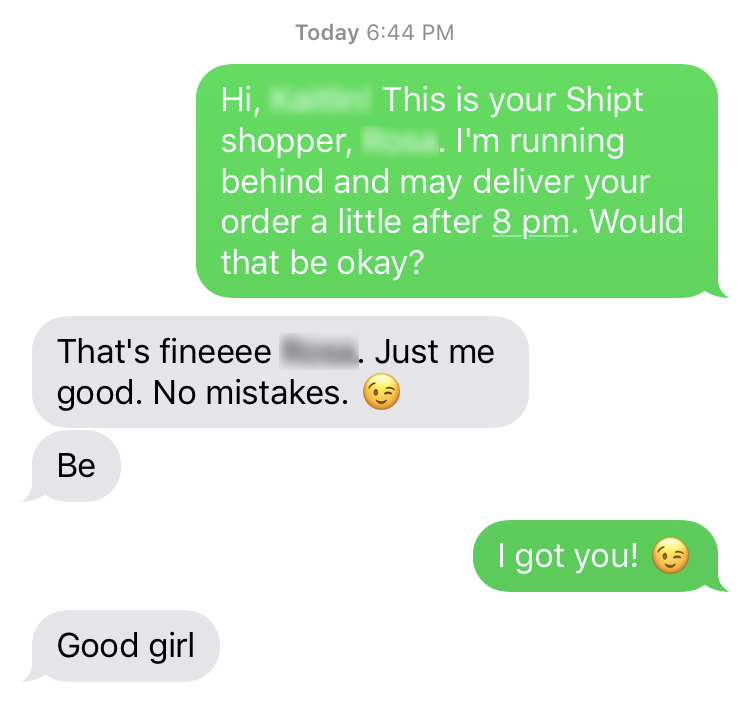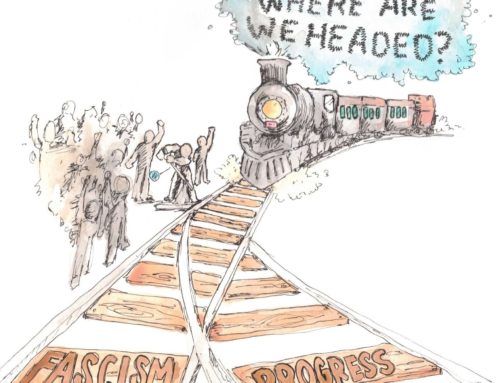I have become a new member of the 75 million gig workers in the United States. After being laid off from a company that was being poorly run by management, I was forced to enter this new system that is often confused with independence.
I used to find joy in my career. It used to make me feel worthy and important – a capitalist ideology which I believed defined me and measured my worth. After getting laid off, I was lost. Although I had all the time in the world, the clock was ticking as the bills started to pile up. So, I became a suffocated, sad, and stressed Shipt shopper.
Shipt is a fairly new grocery delivery service founded in Birmingham, Alabama. Customers nationwide pay an annual fee of US$ 99 and, through “freelance” laborers called shoppers, have access to several grocery stores (Publix, Winn Dixie, etc), including Target and Petco. The process to become a shopper is not as simple as one would think. You must complete an online test, which includes answering with a video message, going through a background check, and showing proof of your car and insurance. The pitch to become a shopper is attractive on the surface level – work your own hours, make your own schedule, don’t work for anyone but yourself, and my personal favorite, “bring happiness by delivering groceries.” I applied eager to start immediately, but had to wait about 2 weeks for approval and another couple of days to receive a credit card to go shopping.
I start my week by setting up the hours I’m available for deliveries through the app. Shipt lets you change your schedule hourly if you wish, but in an effort to give structure to my new freelance lifestyle, I try to set hours for the whole week. Once I’m on schedule, I receive orders and it’s up to me to claim them or drop them. There are hours where I’m on schedule and won’t receive a single order. On the other hand, there are times where I’ll get three orders within the hour. In an effort to make a decent wage, I accept all of them, ultimately hurting myself as I need to ensure I drop off the groceries within the specific delivery window, which is within 1 hour. If I’m late often, I’ll be penalized or even kicked out of the platform, never to be a shopper again. Just like with any regular job, nothing is guaranteed within the gig economy.
If I know I’m running late, I’ll contact the person to let them know. Sometimes the response is pleasant, sometimes it’s angry, and other times it’s just weirdly passive aggressive.
My relationship with customers doesn’t make me feel a special connection with any of them. I mainly deliver to mansions in really expensive neighborhoods or even at fancy boats in marinas. Every now and then I’ll get an order from someone to their elderly parent, but it doesn’t make me feel any special gratitude for providing this service. My only concern or thought is whether I can make just enough money to pay my bills at the end of the month. This is why, to me, the gig economy is a scam, as it doesn’t consider taxes, benefits, gas money, or any other car expenses for that matter. Not only is the pay minimum and it can barely get you by, but it’s also such a fake idea of freedom. You are “free” to set your own hours, but in reality the specific times and days that give more profit determine my schedule. The same way Uber or Lyft drivers work endless nights because those are the hours they get paid the most. I am also “free” to drive all around the city, spending gas money, putting miles, wear and tear on my vehicle at no expense to Shipt. If I get rear-ended while delivering groceries for Shipt, the company makes sure they don’t have to deal with any of that. Shipt reaps all the benefits while I take all the risk to hustle and seek out enough cash to pay my bills. “I feel so free!”
The other day as I geared up to start my day with Shipt, I realized that my bright green “alien-like” t-shirt was made in Haiti. So while I wore this product of exploitation, I started to feel a connection with the textile worker who made this shirt. This person produced a product in a country dominated by imperialism, where capitalists can pay workers less than US$ 5 for an entire 12 to 16 hour day. Shipt can send these shirts out to an abundance of freelance laborers because they’re made cheaply through exploitation. This same capitalist quest for ever increasing profits and cheaper production costs have eliminated stable jobs in the US, forcing a lot of us into the gig economy to make ends meet. Capitalists keep the middle class dominated while exploiting the working class. Workers produce the goods that we (the PB) circulate.
We must recognize that the gig economy is an expression of class struggle. It’s a new avenue for capitalists to keep us dominated, while still having us hold on to the belief of freedom and opportunity. But these struggles are not unique to the US; capitalists worldwide distract us from the reality of our global struggle, to divide us and keep us from organizing in our home countries and from linking our struggles internationally. We’re trained to think in terms of borders and what’s immediately in front of us. Because, if we were to realize our common class struggle against capitalist domination, social relations could shift.
We should not accept that in order for us to exist we need to work 3-5 jobs. We should not accept that international workers should struggle for their basic needs so that we can open service businesses or buy cheap products. Our whole reality shouldn’t be dictated by one class’ dominance over all others.
If you’re tired of working endlessly just to scrape by, the answer isn’t another side hustle. We’ve got to hustle to get organized!
We all have a common enemy: the capitalist class! So we must work together, not only within our communities, but also globally. Wherever we are, we need to be getting organized to resist domination and exploitation. This will be possible by recognizing imperialism as a system of exploitation that helps capitalism grow. This is the goal of One Struggle, to organize at the intermediate level to build a mass movement to resist capitalism and imperialism. All while making international solidarity happen.








